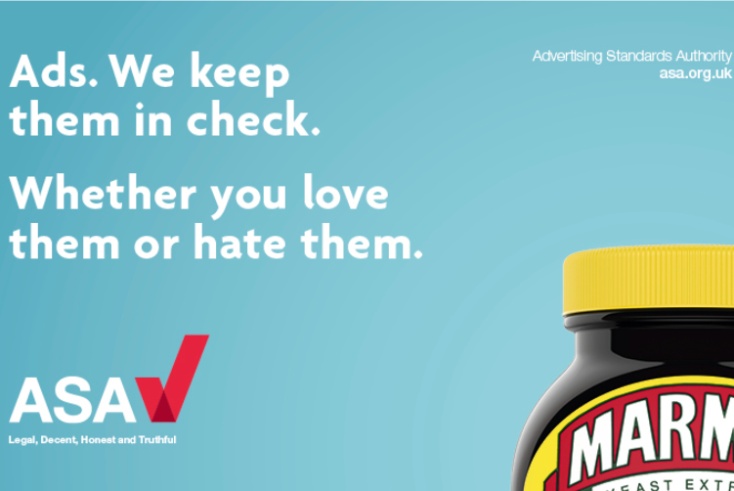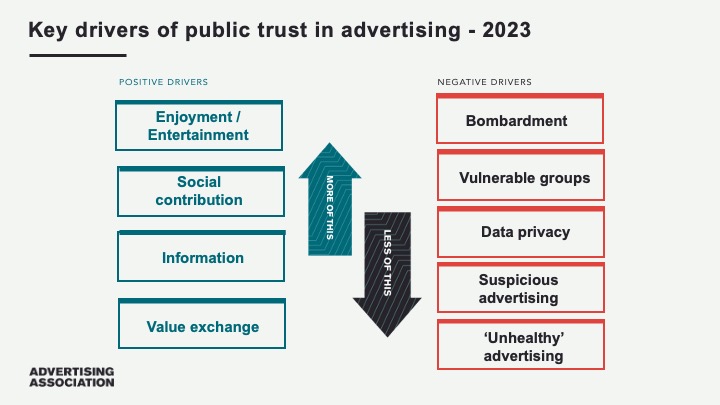Why ‘world view and media socialisation’ are critical to trust in ads


There are three main factors underpinning whether someone trusts advertising, according to the latest study by think tank Credos.
The latest wave of research, What drives the public’s trust in advertising, conducted by research agency Craft, identified world view, media socialisation and definition of advertising as underlying contributing factors to someone’s level of trust in advertising.
World view related to how someone’s attitude towards advertising depended on individual values and views, like how people feeling about living in a consumer society.
In addition people’s view of advertising was shaped by “the media world” they grew up in which can differ between generations as older generations grew up in a more “static” media landscape compared to younger people.
The study also revealed the public had a much broader definition of advertising than those in the industry, including sponsorship, window displays, packaging and scams.
“This research brings into stark relief how attitudes to advertising are shaped by a person’s wider world view on matters such as privacy, sustainability, consumption, to name but a few — understanding an individual’s wider attitudes and beliefs on these issues seems to be a critical part of understanding their attitudes to and trust in advertising,” Konrad Callao, founder of research agency Craft, said.
“Likewise, the media landscape in which people are socialised is crucial in setting expectations of what is normal. Increasingly we are seeing a divide between what kinds of advertising the youngest and oldest adults are exposed to, and therefore what they enjoy, tolerate and are concerned by.”
The research also revealed what it called “a back to the future” trend with closer scores to its first wave in 2018 than 2021 which it described as “impacted by behavioural changes during the pandemic”.
“Engaging and enjoyable creativity” was the biggest driver of trust with an importance score of 31 out of 100.
However, ad bombardment remains the biggest driver of public distrust in advertising on average, and its importance “increased significantly” for younger audiences going from a score of 19 to 32.
Data privacy was a more important factor driving distrust amongst 35- to 54-year-olds compared to other age groups.
Meanwhile, misleading and advertising techniques, including more experiences of scams or fraudulent communications, also contributed to a distrust in advertising, but held a lower importance score than the 2021 study (13 to eight), but still higher than 2019 (five).
In the study, those that were least trusting of advertising believed there were not enough regulations. This comes after the Advertising Standards Authority ran its biggest ever ad campaign last year using famous brands slogans like Churchill insurance and Marmite and plans to launch another awareness campaign from September to December 2023.

